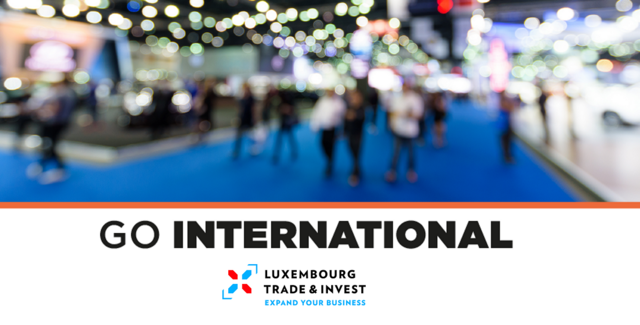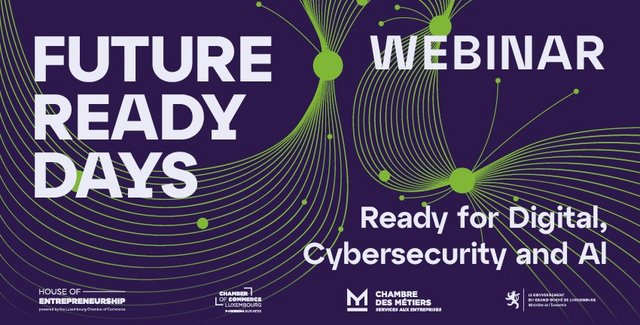
Chapitres
In 788, about a century after the Arab conquest of North Africa, a series of Moroccan Muslim dynasties began to rule in Morocco. In the 16th century, the Sa'adi monarchy, particularly under Ahmad al-MANSUR (1578-1603), repelled foreign invaders and inaugurated a golden age. The Alaouite Dynasty, to which the current Moroccan royal family belongs, dates from the 17th century. In 1860, Spain occupied northern Morocco and ushered in a half century of trade rivalry among European powers that saw Morocco's sovereignty steadily erode; in 1912, the French imposed a protectorate over the country. A protracted independence struggle with France ended successfully in 1956. The internationalized city of Tangier and most Spanish possessions were turned over to the new country that same year. Sultan MOHAMMED V, the current monarch's grandfather, organized the new state as a constitutional monarchy and in 1957 assumed the title of king. Since Spain's 1976 withdrawal from what is today called Western Sahara, Morocco has extended its de facto administrative control to roughly 75% of this territory; however, the UN does not recognize Morocco as the administering power for Western Sahara. The UN since 1991 has monitored a cease-fire between Morocco and the Polisario Front - an organization advocating the territory’s independence - and aims to restart negotiations over the status of the territory.
King MOHAMMED VI in early 2011 responded to the spread of pro-democracy protests in the region by implementing a reform program that included a new constitution, passed by popular referendum in July 2011, under which some new powers were extended to parliament and the prime minister but ultimate authority remains in the hands of the monarch. In November 2011, the Justice and Development Party (PJD) - a moderate Islamist party - won the largest number of seats in parliamentary elections, becoming the first Islamist party to lead the Moroccan Government. In September 2015, Morocco held its first ever direct elections for regional councils, one of the reforms included in the 2011 constitution. The PJD again won the largest number of seats in nationwide parliamentary elections in October 2016.
Source: The CIA World Factbook - Morocco
Indicateurs clés
- Surface
- 716,550 km2
- Population
- 36,561,813 (July 2021 est.)
- Type de gouvernement
- parliamentary constitutional monarchy
- Langues
- Arabic (official), Berber languages (Tamazight (official), Tachelhit, Tarifit), French (often the language of business, government, and diplomacy)
- PIB
- $112.871 billion (2020 est.)
- Taux de croissance
- -7.1% (2020 est.)
- HDI
- 121
- Capitale
- Rabat
Indicateurs macroéconomiques
Morocco has capitalized on its proximity to Europe and relatively low labor costs to work towards building a diverse, open, market-oriented economy. Key sectors of the economy include agriculture, tourism, aerospace, automotive, phosphates, textiles, apparel, and subcomponents. Morocco has increased investment in its port, transportation, and industrial infrastructure to position itself as a center and broker for business throughout Africa. Industrial development strategies and infrastructure improvements - most visibly illustrated by a new port and free trade zone near Tangier - are improving Morocco's competitiveness.
In the 1980s, Morocco was a heavily indebted country before pursuing austerity measures and pro-market reforms, overseen by the IMF. Since taking the throne in 1999, King MOHAMMED VI has presided over a stable economy marked by steady growth, low inflation, and gradually falling unemployment, although poor harvests and economic difficulties in Europe contributed to an economic slowdown. To boost exports, Morocco entered into a bilateral Free Trade Agreement with the US in 2006 and an Advanced Status agreement with the EU in 2008. In late 2014, Morocco eliminated subsidies for gasoline, diesel, and fuel oil, dramatically reducing outlays that weighed on the country’s budget and current account. Subsidies on butane gas and certain food products remain in place. Morocco also seeks to expand its renewable energy capacity with a goal of making renewable more than 50% of installed electricity generation capacity by 2030.
Despite Morocco's economic progress, the country suffers from high unemployment, poverty, and illiteracy, particularly in rural areas. Key economic challenges for Morocco include reforming the education system and the judiciary.
Source: The CIA World Factbook - Morocco
IMF Statistics
| Subject descriptor | 2021 | 2022 | 2023 | 2024 | 2025 |
|---|---|---|---|---|---|
|
Gross domestic product, constant prices Percent change (Units) |
8.155 |
1.527 |
3.403 |
2.792 |
3.603 |
|
Gross domestic product, current prices U.S. dollars (Billions) |
142.022 |
130.952 |
144.438 |
157.087 |
168.597 |
|
Gross domestic product per capita, current prices U.S. dollars (Units) |
3,911.053 |
3,571.091 |
3,901.397 |
4,203.553 |
4,470.641 |
|
Inflation, average consumer prices Percent change (Units) |
1.366 |
6.641 |
6.137 |
1.720 |
2.347 |
|
Volume of imports of goods and services Percent change (Units) |
12.840 |
13.663 |
8.971 |
1.541 |
3.774 |
|
Volume of exports of goods and services Percent change (Units) |
7.607 |
31.720 |
6.946 |
1.363 |
3.678 |
|
Unemployment rate Percent of total labor force (Units) |
12.300 |
11.800 |
13.000 |
13.352 |
12.646 |
|
Current account balance U.S. dollars (Billions) |
-3.330 |
-4.658 |
-0.893 |
-3.136 |
-3.870 |
|
Current account balance Percent of GDP (Units) |
-2.344 |
-3.557 |
-0.618 |
-1.996 |
-2.295 |
Source: IMF Statistics - Morocco
Le Luxembourg et le pays
Existing conventions and agreements
Non double taxation agreement
In order to promote international economic and financial relations in the interest of the Grand Duchy of Luxembourg, the Luxembourg government negotiates bilateral agreements for the avoidance of double taxation and prevent fiscal evasion with respect to Taxes on Income and on fortune with third countries.
- Convention from 19.12.1980 (Memorial 1983, A No.104, p.2232)
- Effective as of 01.01.1984 (Memorial 1983, A No.104, p.2232)
Air Services agreement
- Agreement from 19.05.1961 (Memorial 1965, A, p. 301)
- Effective as of 06.01.1967
Informations supplémentaires
Foreign Trade
The Statec Foreign Trade statistics provide information on the trade of goods - by product and by country. This information is collected respectively through the INTRASTAT declaration and on the basis of customs documents.
You can see the statistics on the website of the Statec.
Contact Points in Morocco
Luxembourg is represented by Ambassade Royale des Pays-Bas à Rabat
Competent post for consular affairs Ambassade du Royaume de Belgique à Rabat
Honorary Consuls
Honorary consul with juridiction over the Regions of Souss Massa-Daraa, Guelmim-Esmara, Laayoune-Boujdour-Sakia El Hamra, Oued-Eddahab-lagouira, Marrakech-Tensift-Al Haouz, Doukkala-Abda, and Tadla-Azilal:
Mr Aziz BOUSLIKHANE
Technopole d'Agadir
Bab al Madina
BP 8143 Agadir
Morocco
Tel.: (+7) 7172 59 22 26
E-Mail: a.bouslikhane@universiapolis.ma
Honorary consul with juridiction over the Regions of Grand Casablanca, Chaouia-Ouardigha, l’Oriental, Rabat-Salé-Zemmour-Zaër, Meknès-Tafilalet, Fès-Boulemane, Taza-Taounate-Al Hoceima, Tanger-Tétouan, and Gharb-Cherarda-Ben Hsain:
Mr Atman HALOUI
70, Impasse Abou
Mahassine Arrouyani
MA-20100 Casablanca
Morocco
Tel.: (+212) 672789106
E-Mail: consul@gdl.ma
Source: Ministry of Foreign Affairs of Luxembourg
Luxembourg Trade and Investment Office
Ms Kenza JOUAHRI
Boulevard Sidi Mohammed Ben Abdellah – Marina Tour Crystal 1
Casablanca, Maroc
Tel: (+212) 661 940 408
Email: kenza.jouahri@ltio.ma / info@ltio.ma
Site web: tradeinvestluxembourg.ma
Country risk as defined by Office du Ducroire for Morocco
Ducroire is the only credit insurer covering open account deals in over 200 countries. A rating on a scale from 1 to 7 shows the intensity of the political risk. Category 1 comprises countries with the lowest political risk and category 7 countries with the highest. Macroeconomics experts also assess the repayment climate for all buyers in a country.
Link: Ducroire Office - Country Risk for Morocco
Other useful links
- CIA World factbook on Morocco
- Chambre de Commerce belgo-luxembourgeoise au Maroc
- Maroc sur le site du l'AWEX
- Investir au Maroc
- Investment Climate Statement - Morocco 2015
- Présentation du Maroc
- World Bank Open Data - Morocco
- GDP evolution in Morocco
- Index of Economic Freedom - Morocco 2015
- Das ist Marokko




